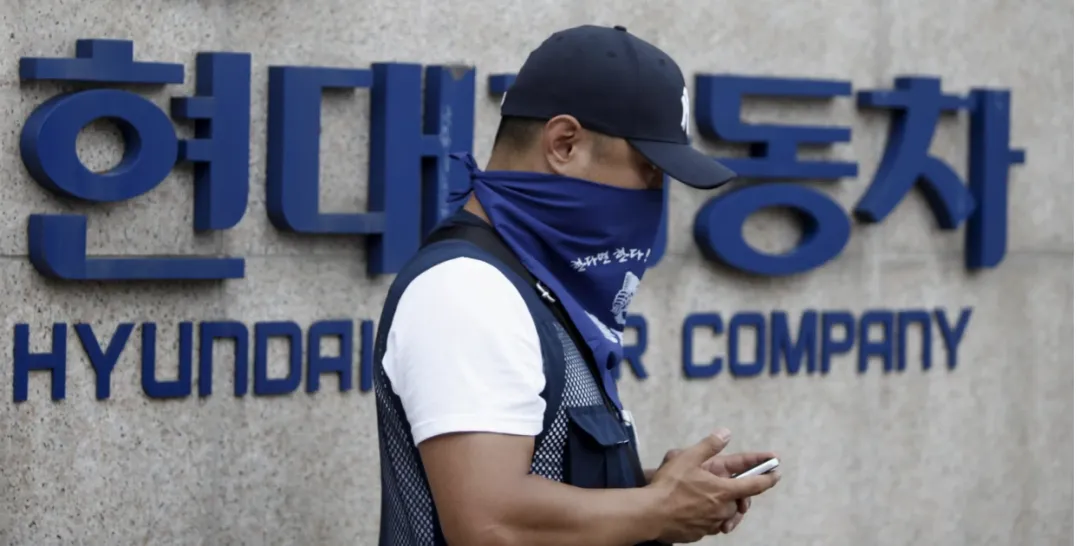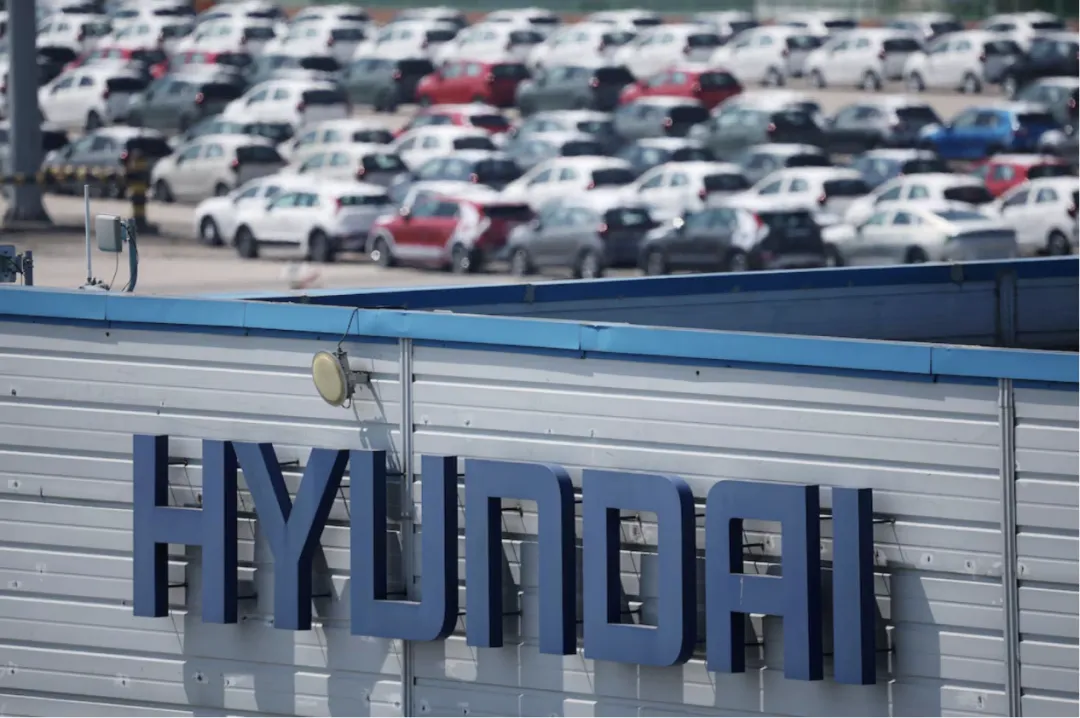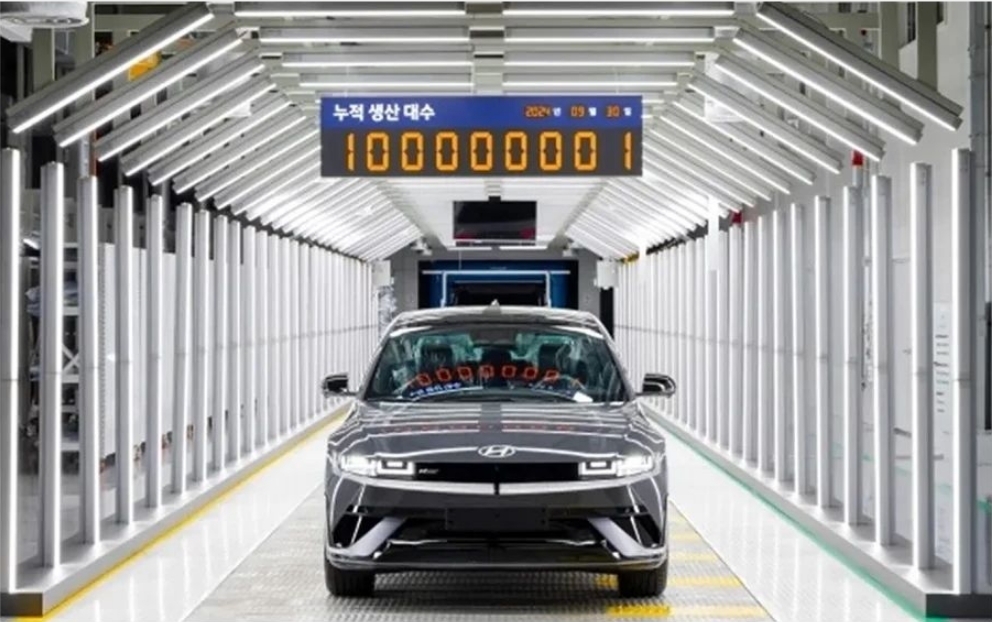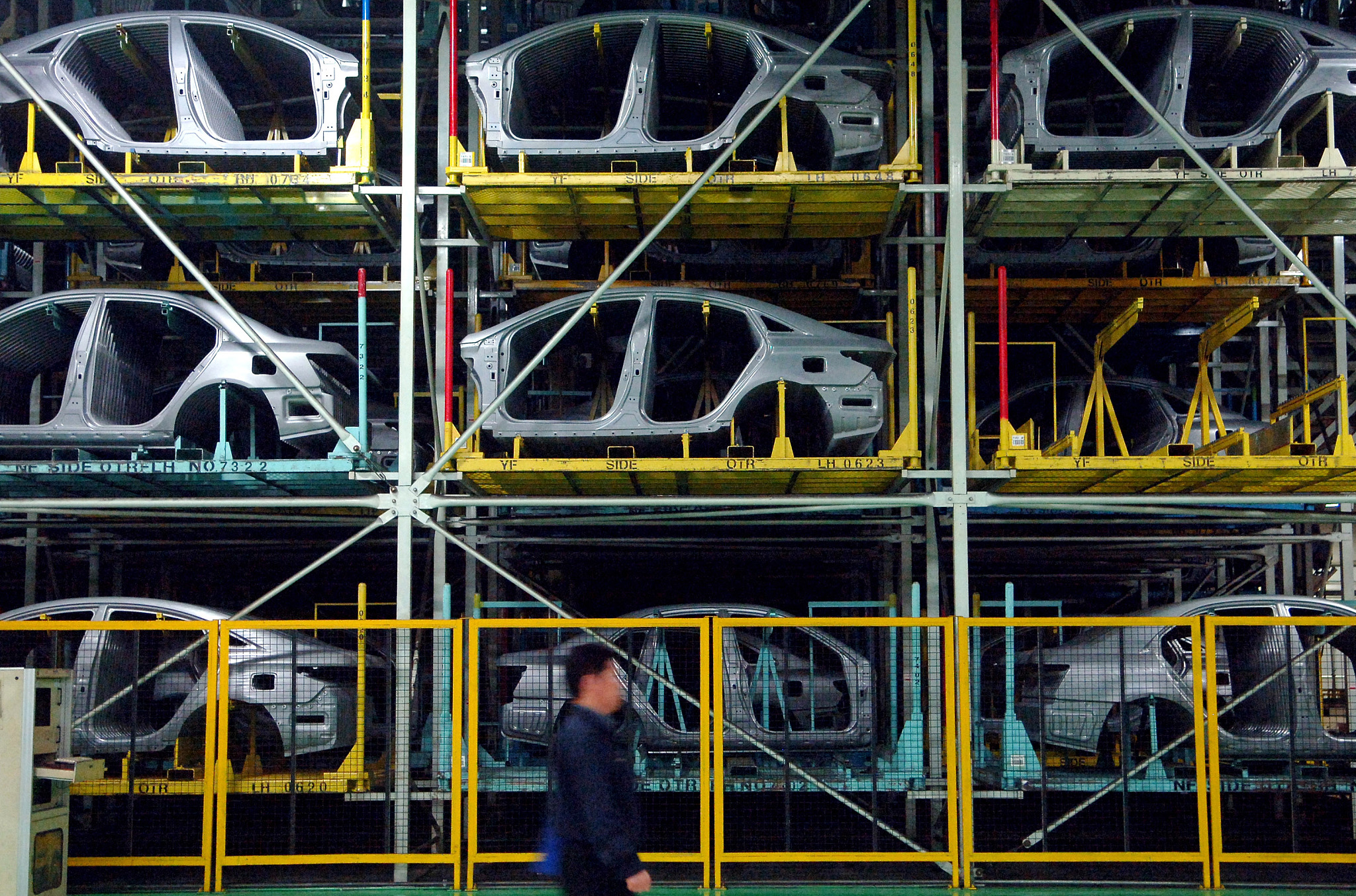
On September 3, 2025, the union at South Korean automaker Hyundai Motor will hold a three-day partial strike at factories across South Korea this week to fight for shorter working hours and higher wages, according to a notice sent to union members.
The notice said the company's 42,000-member Korean labor union would launch a partial strike at several factories in Ulsan, Jeonju and Asan. Workers would stop work for two hours on Wednesday and Thursday, and for four hours on Friday, the notice said.
According to the union, the decision to strike came after the latest round of collective bargaining on September 2nd failed to reach an agreement, as Hyundai management's proposal for increased wages, bonuses, and other benefits fell short of workers' demands. Last week, the union voted on whether to strike, with 86% of voting members supporting the continuation of the strike to safeguard workers' demands.
The union is demanding the company increase basic monthly wages by 141,300 won (about $101.23), use 30% of the company's 2024 net profits to pay special performance wages, reduce the work week from 5 days to 4.5 days, and extend the retirement age from 60 to 64.
According to foreign media reports in July 2024, the automaker and its union agreed last year to raise wages by 4.65% to 90 million won (about US$64,826), which is the largest pay increase Hyundai has given to its factory workers.
A microcosm of tense labor-capital relations
The union's strike action is expected to affect factories producing all Hyundai models.
The flagship Ulsan plant is the world's largest single-unit automotive plant with its own garage dock, producing a variety of models from the Elantra, Palisade and Ioniq 5 to the Genesis G70, G80, G90 and GV70 and GV80 SUVs.
The Jeonju plant specializes in Hyundai commercial vehicles, while the Asan plant produces sedans such as the Sonata, Grandeur, Ioniq 6 and Ioniq 9.
The strike is expected to have a significant impact on Hyundai Motor's finances, according to The Korea Times. In 2016, Hyundai Motor was estimated to have lost around 2.5 trillion won (US$1.8 billion) due to a massive strike, during which union workers stopped production for 166 hours, preventing the production of nearly 114,000 vehicles.
The strike plan has strong support from union members, with 86% of voters in favor of a work stoppage in a vote held last week. The Hyundai Motor Union emphasized that the strike is a targeted local strike rather than a full-scale shutdown, indicating that the union is taking a cautious approach to putting pressure on management while maintaining production continuity.
Hyundai Motor's record revenue in 2024, driven largely by growth in the U.S. market, gives the union, which has a long history of influencing labor conditions in South Korea, having helped implement the country's first five-day work week in 2003, leverage to demand higher performance bonuses.

Hyundai's union, one of South Korea's largest and most influential labor groups, has not called a full-scale strike over wage negotiations in seven years. However, it has held partial strikes for political or labor-related reasons. In December 2024, Hyundai's union held a two-day partial strike to protest former President Yoon Seok-yeol's failed declaration of martial law.
Industry analysts noted that while the partial strike is unlikely to have a significant impact on global auto shipments, it highlights ongoing labor-management tensions in South Korea's auto industry. The outcome of the negotiations could set a precedent for other major South Korean manufacturers in handling wage disputes and adjusting workweek structures.
Unions call for new notification obligations for companies
Hyundai Motor's union has asked the company to include a clause in its collective bargaining agreement requiring it to notify the union when it plans to expand into new businesses outside the automotive industry or increase investment in such areas. The current agreement only requires the company to provide the union with materials and briefings on local factories producing overseas vehicles, but the union is seeking to expand the scope to include new business areas.
The Hyundai Motor Workers' Union recently informed its members that it is negotiating with management to add a "new business notification obligation" to this year's collective agreement. The union stated, "The industry is changing rapidly, and entering new businesses is closely linked to job stability," adding, "Pre-emptive notification is the first step in ensuring job security."
Even if a “new venture notification” clause is included in the agreement, as the union proposes, the company would not need to seek the union’s consent when deciding to invest in new ventures.
Hyundai Motor clarified, “It is just a new notification obligation, and it does not involve a negotiation process.” However, the industry is beginning to worry that labor unions are expanding their ways to interfere with corporate management decisions and demanding to obtain key corporate judgment information in advance.

Hyundai Motor has recently expanded into new businesses, such as robotics and advanced air mobility (AAM), primarily in Silicon Valley. Under the proposed regulations, the company would be required to notify the union each time it undertakes such activities. Some industry insiders believe that while this is a mandatory notification requirement, immediately notifying the union every time a new business venture is launched could lead to unexpected complications.
The union's demands are closely related to the "Yellow Envelope Bill" recently passed by Congress (amendments to Sections 2 and 3 of the Trade Union Act). The Yellow Envelope Bill defines "management decisions affecting working conditions" as a category of labor disputes, and the union believes that the entry of new business falls within this category.
Meanwhile, the Hyundai Motor Union began a strike on the 3rd and will continue until the 5th. This strike breaks a seven-year period of non-strike negotiations between labor and management. The two sides remain deadlocked over issues such as wage increases, raising the retirement age, and expanding the scope of general wages.
The management proposed a 95,000 won monthly base salary increase, an additional 14 million won on top of a 400% performance bonus, 200,000 won in traditional market vouchers, a 30-share stock incentive plan, and the expansion of regular wages to include some allowances. However, the union rejected these proposals, and negotiations are continuing.
Record sales in the US
Hyundai Motor Group's domestic and international operations are experiencing a dichotomy. While achieving record monthly sales in the US, the company is facing its first union strike in seven years in South Korea, which is expected to incur trillions of won in economic losses. With US business booming, the operational uncertainty created by the strike could accelerate local production efforts.
On September 3rd, Hyundai Motor North America announced that its August sales totaled 88,523 vehicles, a 12% year-on-year increase, setting a new record for the same period. Retail sales accounted for 79,021 vehicles, an 8% year-on-year increase. Sales of the all-electric Ioniq 5 surged 60%, accounting for 32% of total sales.
"This August was a special month, with record sales and total sales, putting us on track for our best annual performance ever," said Randy Parker, CEO of Hyundai Motor North America.
Kia Motors North America also achieved a record sales of 83,007 vehicles last month, a 10.4% year-over-year increase. Popular models such as the Carnival, Telluride, and Sportage saw sales increases of 29%, 19%, and 19%, respectively. The electric SUV EV9 set a new monthly sales record with 2,697 units. Luxury brand Genesis saw sales increase by 7% to 7,925 vehicles, setting a new August sales record.

However, the surge in sales last month was affected by the expiration of the U.S. Inflation Reduction Act (IRA) electric vehicle tax incentives at the end of this month. The subsidy reduction may affect electric vehicle sales from October.
South Korea is treading on thin ice. The Hyundai Motor union launched its first partial strike in seven years on the 3rd, citing unsuccessful progress in wage agreements and collective bargaining this year. The strike is scheduled to last 16 hours by the 5th. While negotiations are ongoing between Kia management and the union, there remains a gap between their positions. With the Hyundai strike underway, Kia could join in at any time.
The industry predicts the strike could result in trillions of won in sales losses. Last month, Hyundai Motor's domestic and overseas sales saw a slight increase of 0.4% year-on-year, with domestic sales increasing by 0.4%. Kia's domestic sales grew 7.4%, but exports fell 0.4%, resulting in an overall increase of just 0.8%.
The operational uncertainty caused by the union strike may accelerate Hyundai Motor Group's efforts to localize production. A source at an auto parts company revealed, "Although Hyundai Motor Group recently announced plans to increase local production and the localization of its parts supply chain in response to US tariffs, the industry believes the tariffs are effectively a convenient excuse."
The US's 25% tariff on imported cars is also a heavy burden. Hyundai has not yet passed the tariff on to consumers, instead absorbing the cost itself, but this burden is becoming increasingly difficult to sustain. Raising prices in the US market would weaken local competitiveness, potentially leading to a reduction in South Korean exports and a greater proportion of US production.
Hyundai Motor announced its long-term plan to shift its parts supply chain to the United States during its second-quarter conference call in July. During the South Korea-US summit last month, Hyundai announced it would increase its investment in the US from $21 billion (approximately 29.2 trillion won) to $26 billion (approximately 36.2 trillion won), with one of the funds earmarked for expansion of US production capacity and increased local content.
(Original title: Auto giant strikes, employees demand 4.5-day work week)

